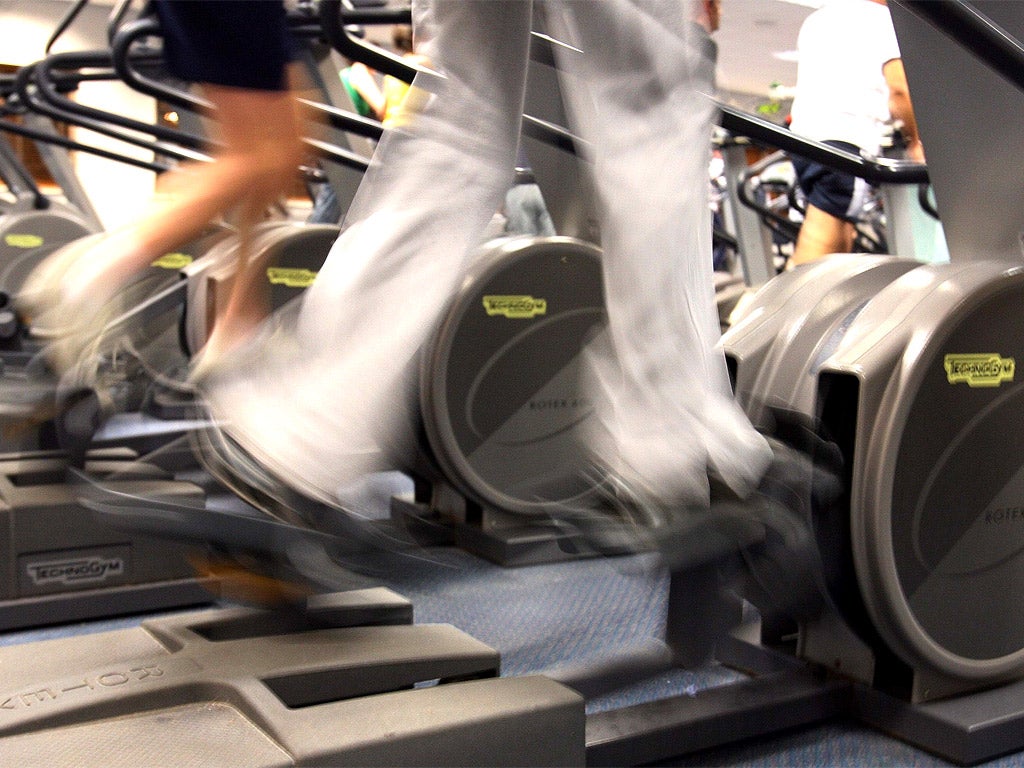Exercise ‘just as good as drugs’ for treating heart failure and strokes
A ‘blind spot’ exists about the true benefits of being more active, claims a new study

Your support helps us to tell the story
From reproductive rights to climate change to Big Tech, The Independent is on the ground when the story is developing. Whether it's investigating the financials of Elon Musk's pro-Trump PAC or producing our latest documentary, 'The A Word', which shines a light on the American women fighting for reproductive rights, we know how important it is to parse out the facts from the messaging.
At such a critical moment in US history, we need reporters on the ground. Your donation allows us to keep sending journalists to speak to both sides of the story.
The Independent is trusted by Americans across the entire political spectrum. And unlike many other quality news outlets, we choose not to lock Americans out of our reporting and analysis with paywalls. We believe quality journalism should be available to everyone, paid for by those who can afford it.
Your support makes all the difference.Exercise may be just as effective as drugs for treating common diseases such as heart failure and strokes, a major review of evidence has suggested.
Researchers from three leading institutions say that exercise is a “viable alternative” to drug therapy in preventing deaths from coronary heart disease, heart failure, diabetes and stroke.
The study raises the question of whether doctors might be unnecessarily prescribing drugs when a simple instruction to be more active might be more appropriate. The rates of drug prescription in the UK have risen dramatically over the past decade.
However, only 14 per cent of UK adults exercise regularly and only one third of adults in England meet the recommended levels of physical activity.
The authors said there was a “blind spot” in knowledge about the true benefits of exercise, but health charities and the NHS said that, while exercise had a “vital role” in improving health, people on medication for any condition should not stop taking drugs prescribed by their doctor.
The study, published in the British Medical Journal, looked at the results of 305 randomised trials involving 340,000 people and compared the effectiveness of exercise versus drug treatments in reducing mortality in patients with the four conditions.
They found no “statistically significant” difference between exercise and drug interventions and discovered that for stroke, exercise was actually more effective than drug treatment. However, for heart failure, diuretic drugs were more effective than exercise.
The team, which included researchers from the London School of Economics, Harvard Medical School and Stanford University, said that the evidence-base for the benefits of exercise in reducing mortality from the conditions was small and more trials were urgently needed.
“The findings of our review suggest that exercise and many drug interventions are often potentially similar in terms of their mortality benefits; exercise interventions should therefore be considered as a viable alternative to, or alongside, drug therapy,” they conclude, adding that “[in] cases where drug options provide only modest benefit, patients deserve to understand the relative impact that physical activity might have on their condition.”
Amy Thompson, senior cardiac nurse at the British Heart Foundation, said that more research was needed before firm conclusions were made.
“Medicines are an extremely important part of the treatment of many heart conditions and people on prescribed drugs should keep taking their vital meds,” she said.
“If you have a heart condition or have been told you’re at high risk of heart disease, talk to your doctor about the role that exercise can play in your treatment.”
Dr Peter Coleman, deputy director of research at the Stroke Association said that exercise and physiotherapy were known to play “a vital role in helping patients recover after stroke” but agreed that exercise “should not be considered an alternative for patients taking prescribed medication as advised by their GP”.
An NHS England spokesman said: “Regular exercise is important as part of a healthy lifestyle. At the same time, decisions on which drugs to prescribe are made by doctors based on the individual needs of their patients. It is not advisable for anybody to stop taking medication without speaking to their doctor.”
Join our commenting forum
Join thought-provoking conversations, follow other Independent readers and see their replies
Comments